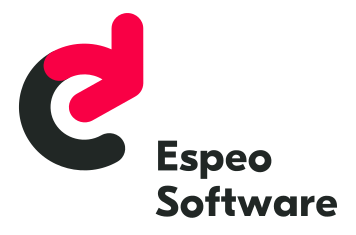What can we learn at a workplace? I’ve recently asked several people what they have learned at their jobs. No matter where they came from, or what stage they were in their careers, I can summarize it in one word: experience.
Another question comes up: how do you interpret ‘experience’ correctly? Does the definition differ depending on the actual workplace setting? I dug into the topic a bit. Before providing the answer, I’d like to show what I found interesting, including different views of what work really means.
Company culture
Making the decision to take a new job in a certain organization usually means immersing yourself in its culture. In management studies literature, culture is often shown from different perspectives, since it has a wide definition. We need to learn the aims of organization and its values, and which factors have an influence on the decision-making process in a certain place.
‘Organization’
We’ll quote Chris Grey, a professor of Organisational Studies at Royal Holloway University of London. He stated that ‘organization’ is a momentary crystallization of an ongoing process of organizing. Organizing is about reducing unclearness through information processing. It’s an entire process, involving all activities and behaviors (individual interactions). From a managerial point of view, it’s about defining the scope of work, setting goals and defining and dividing tasks. So in other words, it’s about coordination of duties and tasks.
Communication
On one hand, our work demands a series of responsibilities and duties from us. On the other, people are frequently looking for to gain something for themselves. We all have inner motivators which drive us to take certain actions. All people have their own values and triggers. For teamwork, this means each person needs to commit to learn from each other and collaborate.
Working also means growing up and developing, especially by interacting with others. It means teamwork, problem solving, self-management and self-awareness. All of these are often crucial in a workplace.
Self-management
Self-management is about holding yourself accountable and motivated. Usually, it demands stepping outside of your comfort zone and being unafraid of rejection. Persistence and taking actions create positive outcomes. Being passive generally brings you nothing. Self-awareness should make us think about ourselves, and how we approach certain situations. It also can help us appreciate our work. Moreover, it educates not only us, but also people around us. We all have a certain impact on the life of the organization.
Teamwork
Teamwork can’t exist without good communication. Academics point to useful skills like attentive listening, which involves taking other people’s opinion into account. Making decisions carefully, being open to compromise or just being more confident in interactions are skills in themselves. Collaboration and confidence help with solving problems and finding a solution in many cases. This is especially true when it comes to working with many different types of personalities. Last but not least, the ‘workplace’ is also a group of people who potentially can become our close friends.
Experience at Espeo
Getting back to the question. So, what does experience mean? My understanding is that it’s a combination of expertise, practices and knowledge gained in organizations.
I asked some people working at Espeo about what they have learned here, and whether it had something to do with Espeo as an organization.
Espeo’s employees…
Tomasz, Senior Developer/Team Leader: “At Espeo, I got a chance to become a leader. With a credit of trust from the management over time I’ve been named a team leader, technical leader and a scrum master. I’ve learned how to work with different types of teammates, how to tackle technical problems on a project architecture level and how to enable the team to accomplish success. Not everything was smooth sailing. I’ve also learned how to deal with customer’s failed expectations, how to overcome morale declines and how to approach individual mistakes. Despite all the obstacles, I’m still on this path and try to improve every day with constant guidance from my leaders and supervisors.”
Andrzej, Software Developer/Team Leader: “At Espeo, I’ve learned how important is it to maintain the right level of communication with the client to make project management smooth. No project can exist without its business side and the client. It’s crucial to make sure that communication between the development team & the business team meets the highest standards possible.”
Going beyond work
Maciej, Software Developer/System Analyst: “Before I started working at Espeo Software I thought that work is only a source of income, and that the workplace is a place where I would learn some tools and have peace of mind for years. I was recently asked “what have you learned over these few years” and realized something. All this technical and non technical experience and knowledge that can’t be calculated easily. I’ll summarize it this way: I learned that work is really an eternal commitment to learning and growing, but not like at the university – much more difficult sometimes but also more enjoyable.”
Natalia, Content Manager: “I came here from an academic environment, so I had to adapt to a much different approach towards work. This included major changes (such as working agile) to smaller things like making team communication smoother. While such adaptations can be stressful, they’re a great example of the mobility that this industry can afford. If you’re good at something, you can end up having the job, that’s all. On the whole, really valuable experience goes beyond how strong you are on the job market. Plus, I finally got to see what Poznań’s Old Market looks like in the morning.”




